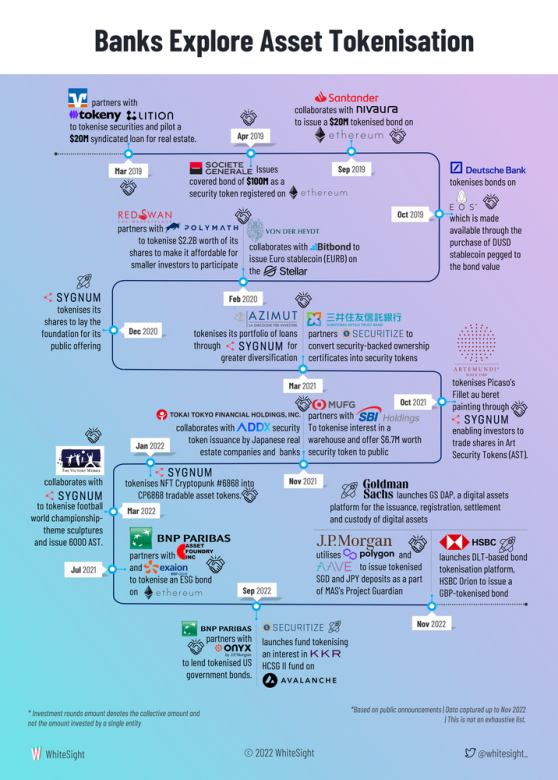Q&A with Professor Nadia Massoud, Fintech and Blockchain for New Economies short course facilitator
Fintech and blockchain technology is transforming the future of business. It has the potential to disrupt almost every industry from accounting to health, and from human resources to corporate governance.
Melbourne Business School Professor of Finance Nadia Massoud is internationally acclaimed for her expertise in the financial intermediaries of blockchain and digital currency. As the facilitator of our Fintech and Blockchain for New Economies short course, she shares insights on the importance of the technology, its applications, and its future opportunities amid regulatory and environmental considerations.
Professor Nadia Massoud

Nadia is an accomplished finance professor with extensive experience in academia, consulting, and research. She has held academic positions at renowned business schools and universities worldwide, including Melbourne Business School, York University, and University of Alberta.
Nadia's expertise spans various areas such as financial institutions management, risk management, corporate finance, and fintech, particularly blockchain technology. She is recognised internationally for her research on disruptive technologies, financial intermediation, corporate finance, and corporate governance. Her work has been published in prestigious academic journals and she has been invited to speak at prominent events and conferences.
Nadia's research has garnered recognition and awards.
Nadia, can you explain the importance of blockchain technology and what inspired you to explore it further?
I have always been fascinated by emerging technologies and their potential to revolutionise industries. Among these technologies, blockchain has captured my attention due to its ability to disrupt and transform traditional systems in sectors such as finance, supply chains and healthcare.
Recognising the growing demand for blockchain professionals, I have designed this course to assist individuals seeking career growth, job security and the opportunity to work on cutting-edge projects. By providing comprehensive knowledge and skills in blockchain deployment, the course aims to empower professionals to leverage this transformative technology effectively.
Through this investment in blockchain education, individuals can gain a competitive advantage, secure fulfilling positions and contribute to the advancement of various industries.
How can blockchain be utilised to improve efficiencies and the security of various processes?
Blockchain technology can bring benefits to industries with the following features:
- It has numerous intermediaries.
- It requires record-keeping and the participation of multiple parties.
- Proof of provenance
In such cases, blockchain eliminates the need for intermediaries, reduces costs, enhances transparency, and ensures data integrity. Industries such as brokerage for financial services, real estate transactions, voting systems, accounting records, supply chain management, land registry and identity verification can all potentially benefit from the implementation of blockchain technology.
How is blockchain disrupting traditional industries?
The technology has started to be adopted by many industries. Here are some examples.
In the financial industry:
- Payment systems including peer-to-peer payments, such as Bitcoin and Litecoin, and cross-border solutions for business-to-business, such as Ripple and Veem.
- Decentralised finance, such as DeFi marketplace, Avve.
- Lending companies, such as Maple. Credit professionals manage fast-flowing lending where capital is syndicated and lent institutional borrowers to fund business growth and operations.
- Banks have been exploring tokenisation with blockchain technology, where shared infrastructure enables seamless global trading of private assets. Here is a great timeline of how quickly and how many finance companies are implementing the technology.
Image

In supply chains:
- Maersk recently launched a collaboration project with IBM to embed blockchain technology in its supply chain. It digitises the paper trail traditionally used to track products across shippers, ports, freight forwarders, and customers.
- Bext360 is taking a similar approach with coffee beans. It tracks the bean stock as it travels downstream along the supply chain. Upstream, it can also instantly assess and issue payments to growers.
- BeefLedger is developing and commercialising an integrated blockchain-enabled beef provenance platform tracking the origin of beef to overcome food fraud, protecting Australia’s beef industry.
And finally, one more example from the healthcare industry:
- IBM has developed a ‘Digital Health Pass’’ that acts as a multi-credential verifier, which was first used to verify COVID-19 vaccination.
How do regulatory actions, such as the charges brought by the US Securities and Exchange Commission (SEC) against cryptocurrency exchanges Coinbase and Binance, impact the fintech sector? What factors influence the extent of their impact?
The impact of regulatory actions on the fintech sector, such as the recent lawsuits by the SEC against cryptocurrency exchanges Coinbase and Binance, and previous case against Ripple, can vary depending on jurisdiction, specific allegations, and regulatory approaches.
In the US, the SEC under Democratic leadership has been notable for its increased scrutiny and regulatory focus on cryptocurrency applications. The lawsuits against Ripple, Coinbase, and Binance are based on arguments about the classification of certain cryptocurrencies as securities and potential non-compliance with securities regulations. While these regulatory actions may lead to short-term volatility in the crypto market, the industry has demonstrated resilience in the face of similar challenges in the past.
It's important to consider that cryptocurrency applications are global, and if one jurisdiction becomes less favourable, there are numerous other jurisdictions that may offer more supportive regulatory environments. The global nature of these applications allows for potential migration to jurisdictions with favourable frameworks, helping to mitigate the impact of regulatory actions in a single jurisdiction.
Staying informed through reliable news sources and monitoring developments in regulations and industry responses is essential to understanding the evolving landscape of cryptocurrency regulations and their potential impact on the fintech sector.
How is the confluence of AI and blockchain impacting the fintech industry and other industries?
The convergence of AI and blockchain technology has significant transformative potential across industries. Integrating AI with smart contracts automates actions, reducing intermediaries and improving operational efficiency. This impacts sectors such as education, supply chain management, energy and healthcare.
Additionally, the growth of decentralised finance (DeFi) powered by AI and blockchain enables direct financial transactions without intermediaries. The continuous advancement of these technologies is expected to further expand their impact on industry delivery, management and security.
The energy consumption to power a cryptocurrency-focused future would be great. Can you summarise the current challenge and share your thoughts on a solution to lessen negative environmental impacts?
The energy consumption issue primarily affects blockchains like Bitcoin that rely on energy-intensive mining for transaction verification. However, newer blockchain applications have emerged, adopting alternative verification processes such as staking, which is more environmentally friendly.
Existing projects like Ethereum are also transitioning from energy-intensive proof-of-work to more sustainable proof-of-stake consensus mechanisms. This shift reflects a growing industry focus on reducing the environmental impact of blockchain technology.
